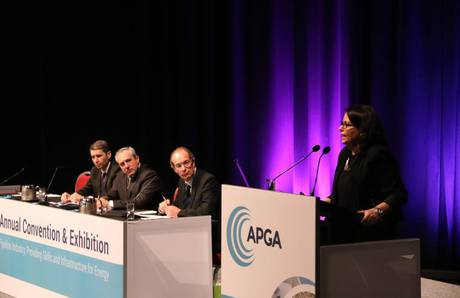Psychosocial safety at work results in ROI

Employers who maintain a healthy workplace culture in today’s increasingly complex workplaces will earn a return on their investment, according to TMS Consulting Chief Executive Officer Helen Wood.
In a paper presented at the 2015 Australian Pipelines and Gas Association Annual Convention and Exhibition from 17–20 October, Wood said that a range of pressures confronted employers and employees.
“These pressures result from economic uncertainty, increased competition, change and ambiguity, the ‘war for talent’, emerging technologies, reduction in the availability of skilled workers and an ageing population,” she told delegates.
“Many employees are facing increasing workloads, longer hours, job insecurity, understaffing, bullying, violence and poor work organisation. As a consequence, employees are feeling the harmful effects of mental stress, as well as physical work strain.
“The pressure to do more with less creates more pressure and some companies are slow to respond, thereby increasing psychosocial risk.”
Wood said today’s workplace holds a range of psychosocial hazards that should be managed by applying health and safety systems and relevant practices. Organisations not placing enough value on the wellbeing of workers are likely to be less efficient, less effective and less productive.
“Work health and safety legislation requires employers to put reasonably practicable strategies in place to control psychosocial hazards,” she said.
“However, due to the complexity and the many dimensions of psychosocial safety hazards, ensuring psychological wellbeing outcomes is difficult. It does tend to be an issue that mystifies many employers and health and safety professionals.
“But the escalating costs of psychosocial safety are simply becoming too big to ignore. It is more important than ever to develop a clear understanding of what psychosocial safety is, the hazards and risks, and how to reasonably control these in the workplace.”
She believes positive measures around employee engagement and an appropriate culture are essential, and leadership is key to creating the right environment at work.
“The clear message is that psychosocial hazards are manageable and effective strategies can be implemented to maintain a healthy workforce, with positive return on investment,” said Wood.
“Organisations should focus on leveraging existing health and safety management practices to develop robust, effective interventions, resulting in positive outcomes for employees, managers, and employers and stakeholders.
“Companies must also look at their culture as a key factor in ensuring effective management of risks.”
In support of National Safe Work Month, TMS Consulting is hosting the free seminar ‘A manager’s guide to identifying fatigue’ on 29 October in Brisbane. For more details, click here.
Tips for employers to enhance worker mental health
Mental health issues have serious implications in the workplace, particularly given the...
Psychosocial risks: the difference between work design and culture
A "toxic" workplace bullying prosecution in October 2023 highlighted the importance of...
Ensuring that psychosocial risk management meets legal requirements
A great deal of misinformation still surrounds the concept of psychosocial risk management,...










